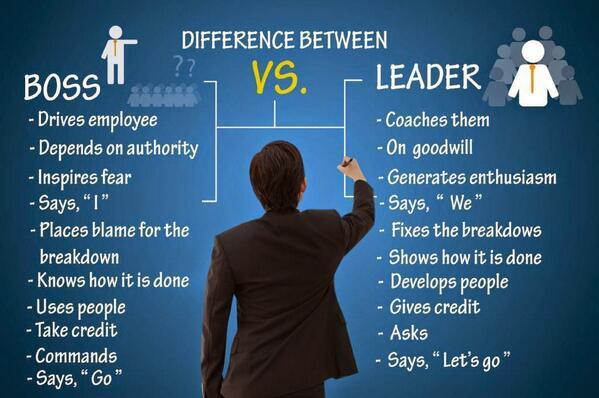Canadians for Israel @CDNS4Israel
Of course, I don't have the answer to the crisis in the Middle East or the solution for poverty. I can't tell you where lies the path to world peace - I'm only human, limited to the same skin, bones and moderate cognitive capacity as anyone.
Which is the point. We are all individually limited in what we can achieve. None of us can move mountains, nor walk on water, nor part seas. Not on our own.
But are we really meant to? Bear with me for a bit; you'll see where my tangent leads in a bit.
Sea turtles are designed to be independent from the moment they hatch. That's why they have so many babies - it's clear not all of them will make it from shore to ocean, or survive for long when they get there. Theoretically, those which survive should be the strongest and most self-sufficient, ie meant to survive. Let's be honest, though - it's largely luck of the draw.
The young of all mammalian species require more nurturing if they are to grow in to adulthood - they need to be fed, protected, taught basic survival skills. Most have evolved into social species, where adults band together for protection, support and even division of labour. Being social helps mitigate the luck factor, though for most species social groupings are small-scale and often in competition with others over space and resources.
Internally, there's competition for dominance, which means better access to resources and mates but also generally involves greater risk and requirement to fight off aggressors.
Deer have big antlers to fight with; lions have big manes to look intimidating with. They roar, they stomp their feet, they lock horns, or claws, or words.
Words?
Let's switch into politics; how candidates will undermine each other, intimidate with threats and attack ads, or portray themselves as infallible saviours. Only they can save us from a designated enemy. In return for that, of course, we're supposed to leave the big decisions to them and trust their judgment, without question.
Competition is competition; dominance is dominance. On this front humans start from the exact same place as any other species. Whether it's the political arena or the theatre of war, the objectives are the exact same as in any other competitive conflict between any other beast on the planet.
Hamas is a perfect example. As an organizational entity, Hamas is about being the dominant voice for its coalition of people, i.e. the Palestinians. It needs to portray itself as strong, strong enough to fight off the bad guys and aggressive, aggressive enough to deliver the goods its people need to live comfortably. In so doing, they will get continued power and access to resources.
Within Hamas are individuals; some of them are aggressors, some of them are followers, others are like carrion birds, going where the opportunity lies. It's the same as any organization or social grouping.
On the other side of the equation is Israel. Israel is Rivendell for the Jewish people of the world; a safe haven in a world that has, for thousands of years, been anything but for Jews. It is a place that is constantly under threat. The role of Alpha Males/leaders like Netanyahu is to keep the people safe from threats.
Unlike in other countries where Tough Leaders need to manufacture threats to rationalize why citizens should give them unquestioned power, Israel's threats are ever-present.
Is this a gross simplification of the conflict, reducing it to limbic behaviour, resource competition and Alpha males duking it out for dominance among their people largely by picking fights with other groups? Perhaps, but biology is biology - in execution, the Middle Eastern conflict is no different than any other conflict between any other actors anywhere else in the world.
This may be an offensive thing to say, but it is hopefully equally offensive to all parties involved. Yes, I'm saying that the more stressed and pressured you are, the more reactive, defensive and short-sighted you become, just like any other animal. The difference is humans have more complex needs of food and shelter, greater populations and as such, weapons-drive conflicts lead to greater collateral damage.
Toby Trompeter @LobbyChampion
Are we more than our individual biology? Yes, we are. We are also the aggregation of our collective biology, our social engagement. Whatever Ayn Rand might have pushed, people are more than the sum of our parts. We are society.
Humans are more inter-dependent than any other species on the planet. Our babies are helpless for ages; as adults, few of us could survive in the wild without specialized support or access to infrastructure. We see this play out in every slum or warzone in the world; as a species, we cannot go back to being isolated groupings living on the wild.
We have evolved to be social creatures, inter-dependent, more than the sum of our parts. Mapped on top of our reactive, limbic selves is the neo-cortex that is designed to make us more social, more inquisitive, better able to plan ahead instead of just react to what's in front of us.
What do we feel is meaningful? What raises us up beyond being competitive individuals, enables us to aspire and feel part of something greater?
It's easy - community. Community is something we are part of, like cells in an organism. It is something awesome that inspires that lovely oxytocin feeling; we are healthier, happier and better when we stick together.
Which leads to a great paradox - how do we aspire to be more than we are individually when we are pulled by ancient drives to not risk losing what we have?
Forget Id, Ego and Super Ego - where our inner battle lies is between limbic, reactive emotion like fear, suspicion, resentment and anger and pro-social feelings like hope, love and inquisitiveness.
It's one of history's great ironies that the Middle East has been a perpetual conflict zone between the better and worse angels of human nature.
The Abrahamic religions were born there, each bringing community, aspiration and a sense of being part of something greater to the people. The power of each enabled us to transcend our baser instincts, for a time.
We all know this isn't the end of the story, though. As the light of community spreads, it is often met with suspicion and fear, as basic instincts naturally reject that which challenges the status quo. Then, community is consumed by those hard-wired to fight their way to Alpha status. They don't know it, but their anger against the Other and sense of righteous justice is their neurochemistry egging them on to do what it takes to get ahead.
As the birthplace of three of the world's predominant religions, the Middle East has become the hill on which to plant one's flag. At the same time, it is geographic place to which many communities can trace their roots, and their histories. Places like Jerusalem are woven into the tapestries of identify for Jews (the religion and the people), Christians, Muslims and various related demographic groups that have far more in common than they tend to think about.
The never-ending conflict in the Middle East is about many things - territorial rights, safety, justice (or revenge), defense and attack. At it's core, though, it's about human beings with the same basic needs and same basic drives competing for dominance and attempting to drive out the Other.
So long as Semitic people of Abrahamic faith (and their allies) focus on differences, wrongs, mistrust and their own wins, everyone will continue to lose. Those who lose the most will always be the people those Alphas are supposed to be protecting.
They aren't the answer. No one person ever is - and that's the lesson that's emerged from the Middle East time and time and time again.
We - we, the bigger community, we, the whole that's more than the sum of its parts - we are the answer.
No Israeli should feel the need for an army to defend itself against their brothers and sisters across the wall. No Palestinian should feel the need for Israel to suffer so that they can have access to the basic necessities of life.
It's biology, it's politics, it's religion all wrapped into one. The only way forward is for the people to say "we would rather learn to live together than die here alone."
Don't count on any political leader to be that voice - it's beyond them. Through social media, the people from each community need to be reaching out to each other and saying "whatever has happened, I want to understand you now. How can we support each other to make this happen?"
Forget aid to governments - people should provide aid to each other. Empathetic support needs to come from everywhere and be directed at people on both sides of the false divide. Send money, send food, write Open Letter campaigns to press, politicians and to each other saying we're more than conflict, we want to be more than foes.
The absolute hardest thing in the world is to break down the barrier that lie between us and someone we fear, hate or mistrust.
But isn't that the whole point behind loving your neighbour? Isn't that what we've developed our expanding social brain to do?
I never lose hope that we can grow our community and be more than these conflicts, because I know we can.
We just need to have a little faith in each other and what we can build together.
 If you'd seen the original pitch for Richard Pietro's Open Government on the Open Road Tour #OGT14, you'd have scoffed at the idea of investing in it. Microsoft did; they haven't gotten their ROI back, but through Richard they are catalyzing a growing in-person and online Open Community that is taking Canada by storm.
If you'd seen the original pitch for Richard Pietro's Open Government on the Open Road Tour #OGT14, you'd have scoffed at the idea of investing in it. Microsoft did; they haven't gotten their ROI back, but through Richard they are catalyzing a growing in-person and online Open Community that is taking Canada by storm.


